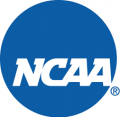Supreme Court Punts on O’Bannon v. NCAA
By Jennifer E. RothmanOctober 5, 2016

On Monday, the Supreme Court denied the petition for certiorari in O'Bannon v. NCAA, a Ninth Circuit decision from September 2015. The decision upheld the application of antitrust laws to the NCAA. The decision in O'Bannon rested in part on the conclusion that the use of the players' names and likenesses in videogames required licensing. That determination involved underlying First Amendment questions about the application of the right of publicity to expressive works, including in this instance to fully protected videogames that involved the recreation of collegiate sports teams. I drafted an amicus in O'Bannon on behalf of constitutional law and intellectual property law professors seeking review of this First Amendment issue.
As I have noted, the federal circuits and state courts disagree about how to analyze conflicts between state right of publicity laws and the First Amendment, especially when noncommercial speech is involved. Right of publictiy claims have been allowed in the context of comic books, commemorative busts, lithographs on t-shirts, videogames, news, and even in political campaigns.
O'Bannon was far from the perfect vehicle for the Supreme Court's consideration of this issue. The NCAA is not a sympathetic defendant--given its historically unfair treatment of student-athletes and the appalling contracts students were forced to sign as a condition for playing collegiate sports. In addition, the antitrust issues in the case and the convoluted way in which the First Amendment was involved made this a longshot for a grant from the Court. All in all, therefore, no surprise that the petition was denied.
Nevertheless, the Court once again has missed an opportunity to provide desperately needed guidance on the clash between the First Amendment and the right of publicity--a subject it has not considered since 1977 when it decided Zacchini v. Scripps-Howard Broadcasting Co., a case in which the Court sowed more confusion than it resolved. Creators of expressive works therefore remain with limited direction on what uses of names, likenesses, and other indicia of identity are permissible in their works. And, unfortunately, we may need to wait a long time now for the Court to take up the issue.
The Ninth Circuit decision left in place in O'Bannon leaves open its own host of unanswered questions.The holding allows universities to continue to license and profit from students' names and likenesses, and does not bar the NCAA from requiring assignments of rights to the NCAA as a condition for playing collegiate sports.
